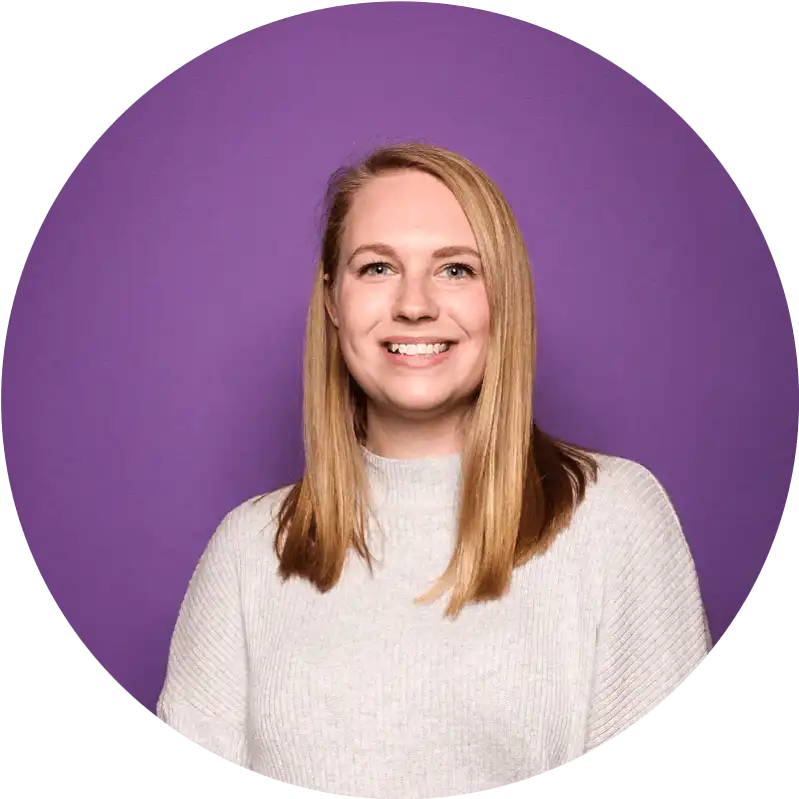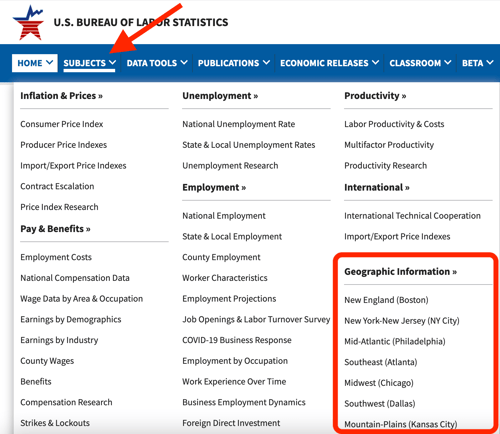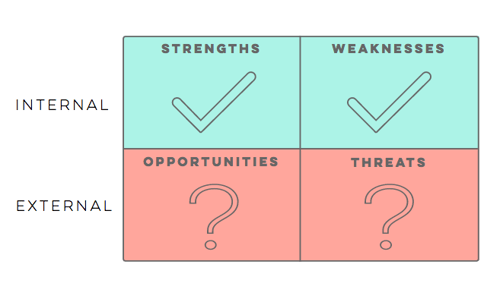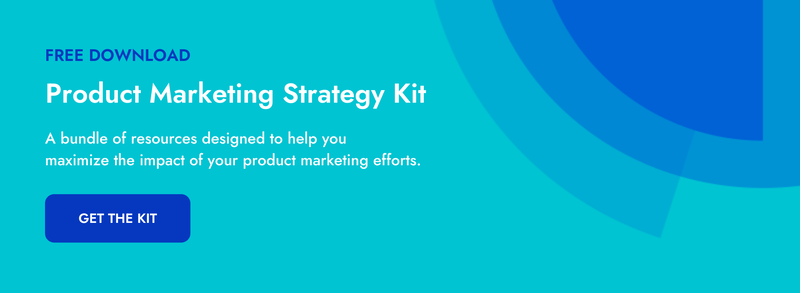 Crayon's Product Marketing Spotlight is an interview series where we chat with product marketers to get a glimpse into their careers and gain unique insight into product marketing strategy. In this edition of Product Marketing Spotlight Series, we shine the light on Meghan Keaney Anderson, VP of Marketing at HubSpot.
Crayon's Product Marketing Spotlight is an interview series where we chat with product marketers to get a glimpse into their careers and gain unique insight into product marketing strategy. In this edition of Product Marketing Spotlight Series, we shine the light on Meghan Keaney Anderson, VP of Marketing at HubSpot.
ED: What is your role?
MKA: I’m vice president of marketing, responsible for HubSpot’s brand, editorial, and product marketing strategies as well as customer education through HubSpot Academy.
ED: What does the company do?
MKA: HubSpot is a growth platform comprised of marketing, sales, and customer service software as well as a free CRM. We believe in growing better, not just bigger. Too many growth tactics today sacrifice the customer experience in the pursuit of incremental gains. We think companies that align their success with their customers’ will ultimately fare better and create a lasting legacy.
Download our Product Marketing Planning Kit
ED: Tell me a little bit about your career path. What was your first job, and what else happened along the way to bring you to where you are now?
MKA: My first real job was as a copywriter at a nonprofit - United Way of Massachusetts Bay. It was an incredible job with brilliant, caring people. It was there that I first experienced the internet’s capacity to garner attention and galvanize action. I ended up running the organization’s website, developing the first blog and social media strategy and experimenting with new digital giving vehicles. Along the way, I learned from and fell in love with the tech industry.
So when it was time to move on from United Way, I joined a marketing-tech startup called Performable. It was a team led by David Cancel and Elias Torres, both of whom have been pivotal to my career. Later HubSpot acquired Performable and I got into product marketing, then expanded my role to lead product marketing, content strategy, and customer education. Today I get to work with an exceptional team of more than 75 marketers and creatives leading the company’s brand, editorial, and product marketing strategies as well as customer education through HubSpot Academy.
It’s really hard to chart what sparked the various twists and turns of my career to this point. Mainly, I chased opportunities as they arose and benefitted from a collection of people who both taught me and enabled me to expand my impact.
ED: What skills have you learned from past roles that helped prepare you for your current role?
MKA: I’ve learned a lot about what it means to lead in an authentic way, how to set and meet targets, and how to analyze my work. The most broadly applicable skill though from product marketing has been learning to find leverage. In a given day there is an endless array of activities you could do - some seemingly mundane, some enthralling - it’s amazing how often we forget to ask the question about which of these activities can deliver the greatest potential return. Everyone loves the big buzzy launch stunt - present company included - but often it’s the seemingly unremarkable thing that carries the most weight. Getting skilled at finding points of leverage and creating a diverse mix of strategies to balance them out has been key in getting the most out of my work.
ED: What advice do you have for someone who wants to start a job in product marketing?
MKA: Product marketing can mean slightly different things in different organizations, so make sure you ask questions about the scope of work, influence, and targets in any company you interview with.
At HubSpot, product marketers focus heavily on the positioning and launch strategy as well as the long-term growth of demand for a product. They are really the driving marketing strategist for a given product line, which means they need to be able to seamlessly switch perspectives between a dozen different specializations from demand gen to sales enablement to customer marketing. Above all of that though - they also need to be a good storyteller. I’ve said this often, but a product will always give you a set of defined traits: It has four walls, it’s free, it connects x to y. These traits aren’t your story. Your story is about the user not the product. It’s about the difference a product can make in the life of a customer. Not what it does, but why that matters.
ED: What is your advice for someone who is planning a product launch for the first time?
MKA: Find your points of leverage! Our launches go through several stages - audience research, message testing and development, channel and execution selection, launch and measurement. Each one of those stages can reveal an opportunity - an audience segment you may have otherwise missed, a channel with great compound returns, a collection of advocates - internal or external - who can amplify your launch. Also, understand what your launch is about. Too many people focus on getting the attention of net new people, when they potentially have a stronger and more potent audience in their own customer base already.
ED: What’s the best career advice you’ve ever received?
MKA: When you take on a new role, look to achieve two things in the first 90 days that sit at opposite ends of the spectrum. First, look for quick, tangible, wins. Then look to set a long-term vision. Quick wins can be anything from fixing a process that’s been nagging people forever to having career conversations with team members that have been put off for too long. Setting a vision can take a little longer. Listen to people, carve out time to develop some theories or opinions, then write up a point of view. It doesn’t have to be flawless. It doesn’t even have to be one you stick with over the long term. But, whether you’re a manager or an individual contributor, it’s important for the people you work with to get a glimpse into your perspective. It sets a tone for what’s to come.
Also - take walks, get space, block-off calendar time. Time to think is everything.
ED: What is something you wish you knew earlier in your career?
MKA: Work matters. Life matters more. I think I knew this in concept early on, but reciting a common sense phrase and really experiencing it are two different things. It took me longer than I would have hoped to untangle my sense of self from work.
ED: What programs or resources have you found to be most impactful throughout your career?
MKA: When I became a parent, being privileged to work in the sort of place and line of work that allows for flexibility was single-handedly the difference between climbing in my career and hitting the breaks on it. That is not hyperbole. That is not an overstatement. That is a fact for which I am infinitely grateful.
Beyond that I’ve benefited most from one-on-one conversations with people of all skills and levels: Mentors who have taken me under their wings, mentees or junior-level employees who have deepened my perspective and made me better at my job, and peers have pushed me to take risks and been there for me when those risks failed.
ED: What’s the best book you’ve read recently? Work or non-work related?
MKA: I think Hanif Abdurraqib is one of the best writers of our time. His book of essays, They Can’t Kill Us Until They Kill Us, is one of the only books I repeatedly pull out and re-read as a way of grounding myself. I should probably slow down on how much I recommend it and play it a bit cooler, but… you know… you should freaking read it.
For work-related books - I just read Tech Humanist by Kate O’Neill, and it raises important questions about the kind of future we should be creating and incentivizing in the technology we encode. Similar reads that I’d recommend: Weapons of Math Destruction by Cathy O’Neill (no relation to Kate as far as I know). And any writing or talks on Algorithmic Bias by Joy Buolamwini. Also, an older one, but I loved Smarter Than You Think by Clive Thompson for a more uplifting view on the capacity of tech to make us better.

Seeing is believing! Check out Crayon for yourself.
Take a Product TourRelated Blog Posts
Popular Posts
-
 The 8 Free Market Research Tools and Resources You Need to Know
The 8 Free Market Research Tools and Resources You Need to Know
-
 How to Create a Competitive Matrix (Step-by-Step Guide With Examples + Free Templates)
How to Create a Competitive Matrix (Step-by-Step Guide With Examples + Free Templates)
-
 6 Competitive Advantage Examples From the Real World
6 Competitive Advantage Examples From the Real World
-
 24 Questions to Consider for Your Next SWOT Analysis
24 Questions to Consider for Your Next SWOT Analysis
-
 How to Measure Product Launch Success: 12 KPIs You Should Be Tracking
How to Measure Product Launch Success: 12 KPIs You Should Be Tracking



